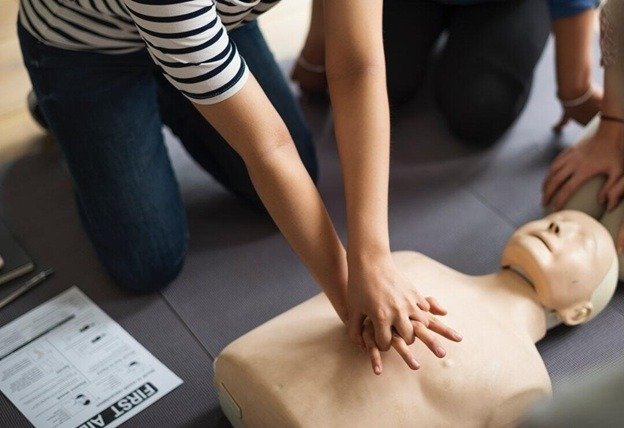Education
Basic Life Support (BLS) Certification: Lifesaving Skills

Have you ever wondered what makes a Basic Life Support (BLS) certification truly worth your time? Choosing the right program is important because it can prepare you to act quickly in life-threatening situations.
Not all certifications are the same, and knowing what to look for will help you make the best choice. Whether you need it for your job or personal growth, a trusted certification ensures you gain the right skills and confidence.
Keep reading to discover the key things to check before signing up for a BLS certification, so you can make a smart and informed decision.
Accreditation and Recognition
The first thing to check is accreditation. A BLS certification should come from a trusted provider. Hospitals, schools, and workplaces often ask for training from recognized organizations.
This ensures that the skills you learn meet national and international standards. A program backed by well-known associations will give you a certificate that is widely accepted.
Experienced Instructors
Instructors play a big role in your learning. A good BLS class should be taught by trained professionals. They should have real-life experience in emergency care. This allows them to explain not only the steps but also the reasons behind them.
Instructors who can share practical examples make the lessons easier to remember. A supportive teacher also helps build your confidence to apply what you learn in real situations.
Hands-On Training
BLS is not only about theory. You need to practice the skills you are learning. A reliable course should give you plenty of hands-on training. You should get the chance to practice CPR on manikins, use an automated external defibrillator (AED), and respond to different emergency scenarios.
This type of practice helps you feel prepared and makes the skills stick. A class that only focuses on lectures may not prepare you well for real-life situations.
Updated Course Content
Medical guidelines change over time. The best BLS programs update their content based on the latest science and recommendations. Before enrolling, check if the course follows current guidelines.
Updated training ensures you are learning the most effective methods for saving lives. Outdated practices may not be as effective, and in emergencies, accuracy is vital. Always choose a program that teaches the newest techniques and protocols.
Flexible Learning Options
Many people look for classes that fit into busy schedules. That is why flexible learning options are important. Some providers offer online modules combined with in-person skills sessions. Others offer weekend or evening classes. This makes it easier for students, professionals, and caregivers to complete the training.
When reviewing your options, look for programs that offer different schedules or blended learning. This will help you find a class that works for you. You can learn more about flexible training options through certified providers.
All About Basic Life Support (BLS) Certification
A Basic Life Support certification is an important step in being ready for emergencies. When choosing a program, look for accreditation, skilled instructors, hands-on practice, updated materials, and flexible options.
The right course will give you confidence and the skills to act when needed most. Taking time to choose wisely ensures your certification is valuable and trusted.
Looking for more tips and ideas? We’ve got you covered. Check out some of our other posts now.
-

 Quotes3 years ago
Quotes3 years ago53 Motivational Gym Quotes to Fuel Your Workout
-

 Motivation5 years ago
Motivation5 years ago4 Fun New Hobbies To Try This Year
-

 Quotes10 years ago
Quotes10 years ago50 Most Powerful Quotes Ever Spoken
-

 Quotes2 months ago
Quotes2 months ago100 Motivational Quotes to Inspire You in 2026
-

 Quotes2 years ago
Quotes2 years ago43 Inspirational Quotes About Thoughts
-

 Quotes3 years ago
Quotes3 years ago105 Motivational Quotes by Famous People
-

 Quotes7 months ago
Quotes7 months ago100 Motivational Quotes to Start Your Day with Positivity
-

 Education1 year ago
Education1 year agoHow to Motivate Yourself to Study: 6 Proven Techniques






























